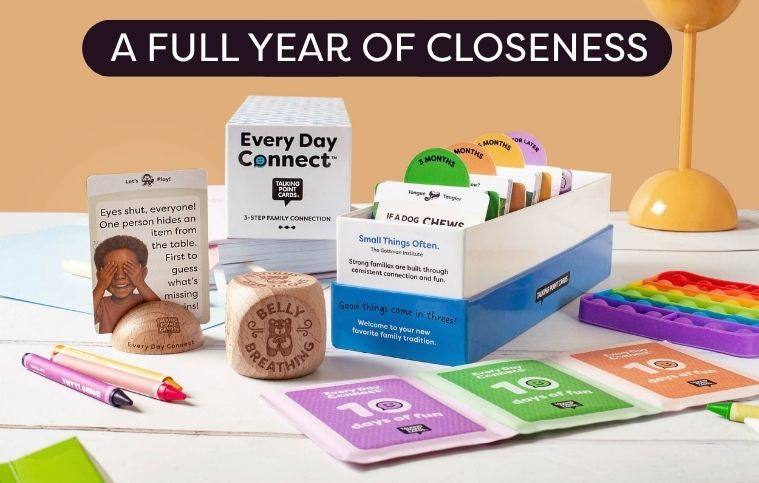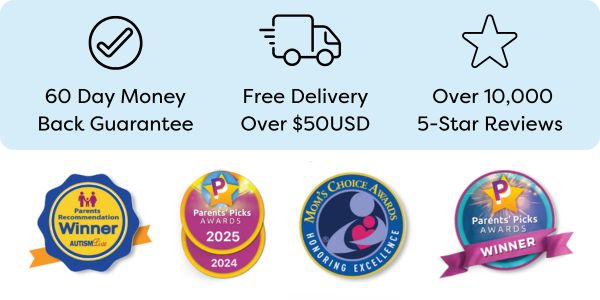SHOP
About
Effective Communication in Relationships
Techniques to Foster Understanding and Connection

Okay, I know what you're thinking—"An article about communication in relationships? Oh man, this is gonna be as dry as the Sahara."
But stick with me here. This isn't your typical dull, preachy relationship advice article. I'm gonna lay out some real shit about communicating effectively with your partner in a way that's engaging, enlightening, and an actually worthwhile way to spend the next few minutes of your life.
Because let's be honest, communication (or lack thereof) is at the core of soooooo many relationship problems. You're not a mind reader, they're not a mind reader, and at some point the crossed wires and misunderstandings put you both in a bad sitcom trope where you're just talking past each other and nothing gets resolved.
But it doesn't have to be that way. With some concerted effort and a few strategic mindset shifts and techniques, you can go from the verbal equivalent of the Kich Cousins screaming match to being fucking relationship communication black belts. Let's goooo.
Be an Active, Present Listener

Okay, this one is Communication 101 but it's so crucial it has to be emphasized. Most of us are just terrible listeners, only half paying attention while mentally drafting what stupid thing we're gonna say next. Guilty as charged.
When your partner is speaking, you gotta put away the mental distractions and be fully present. Look them in the eye, nod along, avoid interrupting, don't get defensive if something rubs you the wrong way—just shut up and drink in what they're saying with an open mind.
Because really listening and making the other person feel heard is huge. It creates space for deeper understanding and it validates their perspective, even if you disagree with some of what they're saying.
So be an active listener—ask clarifying questions, repeat back your understanding of what they said, and make it a habit to genuinely engage with what your partner is telling you. It makes a big difference.

Use "I" Statements
When conflicts arise, it's just natural to go on the offensive with a lot of "You" statements:
"You did this..."
"You never do that..."
"You always..."
The problem is, that makes the other person feel attacked and puts them in defense mode from the jump. Not exactly the mindset for productive conflict resolution. It's an easy way to kick things into World War III territory.
A better approach is to stick to "I" statements that are about your feelings, without being accusatory:
"I felt hurt when this happened...""I get frustrated when this occurs because..."
It reframes things in a less combative way, reduces defensiveness, and allows you to own your emotional experience without blaming your partner.
Again, it's a small tweak but one that can make a huge difference in facilitating understanding vs. triggering a self-defensive meltdown.
Don't be a Chill Bottler

Here's a tough one—if something is bothering you, don't bottle that shit up. Don't try to convince yourself it's not a big deal and just move on without addressing it. Don't be a chill bottler.
Maybe it's not something worth getting worked up over in the moment, but left unchecked, seemingly small things can end up turning into giant resentments that poison a relationship over time. Best to just get it out there.
That said, you also want to find the right time to bring stuff up—doing it when one or both of you is fried from a long day or already heated about something else is just asking for chaos.
Look for calm moments when you can both be mentally present to discuss whatever is bugging you. Being bottled up breeds passive-aggressiveness and other toxic residue, so just...y'know, use your words.

Complaints aren't Criticism
This one was a game-changer for me. Getting critical of your partner, whether it's their personality quirks, habits, or decisions, is probably one of the most corrosive things you can do to a relationship. It makes them feel judged, disrespected, and like they can't be themselves. Not a good vibe.
But voicing a complaint about a specific situation? That's not the same as critiquing their character. A complaint is saying "Y'know, when X happened, I felt Y..." It's bringing up a gripe without assigning blame or making them feel like a bad person.
Letting legitimate complaints go unexpressed leads to those bottled-up resentments we talked about. Raising them in a non-critical way, with an intent to work through the issue, helps avoid that slow poison.
It's a balance of standing up for yourself and what you need, while not making your partner feel constantlyattacked or scrutinized as a human being. What's that thing...ah yes, some would call it "maturity."
Have a Mediator

Let's say you and your partner are just stuck. The same issue keeps coming up, you both feel unheard and unseen, and you're just spinning in unproductive circles of anger and frustration. Time to bring in an impartial third party.
This could mean going to see a couples therapist or counselor—someone trained to facilitate understanding and resolution between partners. They don't take sides, they're not there to judge or blame anyone. Their sole mission is to act as a neutral mediator to help you both communicate better.
If that's not in the financial cards at the moment, you could even try to bring in a third party from your friend group that you both mutually trust and respect. Someone caring and rational whose sole role is to ease tensions and create space for open, judgment-free dialogue between the two of you.
Sometimes, you just need an outside perspective. A buffer between two people who care about each other but have become toxically entrenched in their viewpoints on an issue.
Just don't ask your parents or anyone too biased or close to either person. That's how you end up with someone just throwing gasoline on the fire. You need a neutral third party.

Give Each Other Feedback Sandwiches
Okay, maybe not literal sandwiches. Actually I take that back, who doesn't love sandwiches? But I digress...
When you're voicing something you'd like your partner to improve, try giving them a "feedback sandwich"—start with a genuine compliment or words of affirmation. Then offer the constructive criticism or feedback you want to give. But then follow it up with another positive affirmation, to end on an uplifting note.
"I really appreciate how supportive you are of my ambitions. At the same time, I feel like you sometimes tend to be dismissive of my struggles and play them down a bit. I don't think you mean anything by it, but it does make me feel unseen in those moments. Anyway, I'm just so grateful we're able to communicate things like this. I really value our partnership."
It's just a small way to make feedback a bit gentler and easier to absorb, when it's cradled between positivity and love. It reduces defensiveness and prevents an unhealthy, one-sided dynamic of nothing but criticism and negativity in your communication.
Relationships Are a Work in Progress

At the end of the day, great communication in a relationship doesn't just happen by accident—it requires continual effort, adjustment and a desire to understand your partner's inner experience. It's a neverending process of openness, growth and commitment to connecting on a deeper level.
Problems will always arise, misunderstandings and conflicts are inevitable. But putting some of these techniques into practice—listening fully, leaving criticism at the door, inviting outside help when needed, speaking about your feelings without blaming, etc.—are key ingredients to working through those challenges in a healthier, more constructive way.
Does it take work? Sure. But your partner is one of the most precious humans in your life—putting in the work to understand them and be understood in return is one of the most worthwhile investments you'll ever make.
So go forth and get your communication on, ya'll! A little conscious effort at a time goes a long, long way in fostering the understanding and authentic connection that's at the heart of any truly fulfilling partnership.
Peace, love and quality time listening to those you dig the most ????
LIKED THIS ARTICLE?
SIGN UP FOR MORE!







